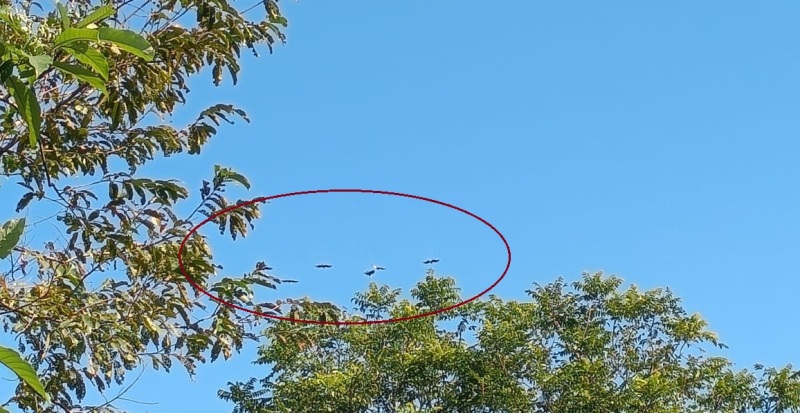Bandipora, Nov 25: The Wular’s sky is filling again.
The lake in north Kashmir has come to life as thousands of migratory birds have arrived to spend winter here as the cold sets in.
The sound of birds wading in flocks, dipping and flying over the lake water, is enthralling the bird enthusiasts, as officials anticipate more species to land as weather conditions get harsher.
The migratory birds, which begin to arrive in late October, can be seen covering large areas of the lake’s cleaner and dredged areas, some distance from fishermen, too busy catching fish on boats, in silence.
“There are thousands of migratory birds in the lake at this time spread across various areas, and we are expecting much more as the weather gets colder,” said Showkat Maqbool, a Wular Conservation and Management (WUCMA) official, who spends most of the time inside the lake.
For at least three years, the lake has recorded some rare bird arrivals after almost 4 sq km of the 27 sq km critically silted lake area was dredged by WUCMA.
This year, after over two decades, lotus bloomed in these areas, reviving Nadru (lotus stem).
Maqbool, who has been documenting the bird arrivals, told Greater Kashmir that these winged guests like clean surroundings and feed on microbes and small fish.
“The areas which have been dredged retain water level throughout the year, and it is in these areas where birds are commonly found as it provides favourable conditions to the different bird species,” he said.
Although the department has not made any rare findings this season, Maqbool said it anticipates four to five species will arrive in a few months.
“We are positive and hopeful,” he said.
Those commonly found in the lake are Common Coots, Northern Shoveler, Northern Pintail, Great Cormorant, Common Teal, Pochard, Common Pochard, Red-Crested Pochard, and Greylag Geese.
Moreover, the rare findings include White-tailed Eagle, Falcated Ducks, Long-tailed Ducks, Smew, Western Reef Heron, Broad-billed Sandpiper, Short-eared Owl, Chinese Pond Heron, and Purple Heron.
Maqbool said that nature had everything to offer them inside the lake, but what humans need to do is “make them feel safe and avoid polluting the lake.”
Notably, to curb poaching, which, as per officials, has witnessed a decline, WUCMA, Forest Protection Force, divisional staff, wildlife authorities, and Police work in tandem.
Besides this, WUCMA has installed CCTV cameras on bird watch towers surrounding the lake, and the feed is monitored remotely from smartphones.
Maqbool said that in just a few months, bird enthusiasts from around the country will arrive to take pictures of rare birds.
However, he said that though it can enhance tourism, the intervention should be kept minimal as “preserving our ecology and giving a safe environment to the birds is important”.
WUCMA and other departments like Tourism and Wular-Manasbal Development Authority are continuously enhancing tourism infrastructure around the lake, which includes bird watch towers, jetty, parks, dykes, gazebos, and fountains.
Locals and observers note that the “lake has immense ecological and economic potential and more areas should be dredged to restore its glory for generations to come.”
The post Winter’s winged guests return to Wular appeared first on Greater Kashmir.
Source link



